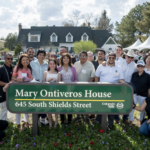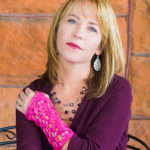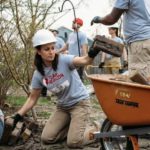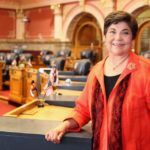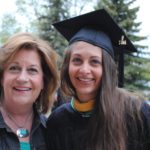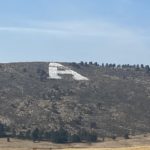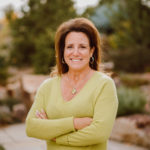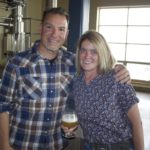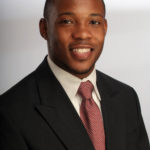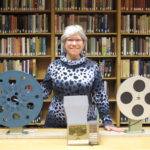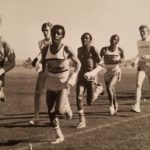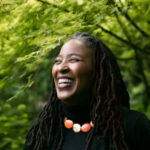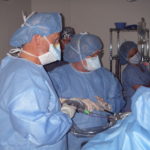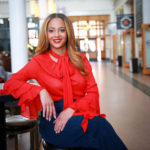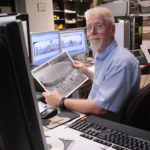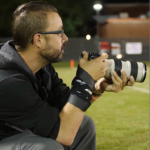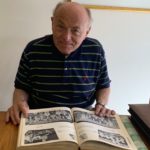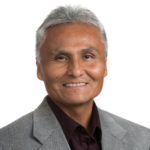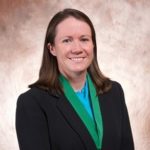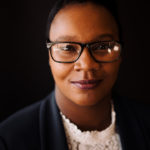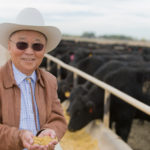The high-tech world in which we live seems to be steadily becoming less human-centered and its impact on people is little more than an afterthought. But technology plays a big role in education, starting in K-12th grade, and there is no shortage of questions about its effect on students: Is technology shaping them in beneficial ways? Are they learning critical thinking skills? How should they manage the negativity of social media? And is the next generation being prepared to cope with artificial intelligence and how it could change the world?
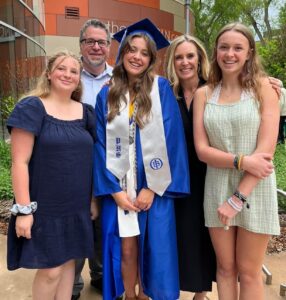
There are no easy answers to those questions, but a conversation with Bud Hunt (B.A., ’01; M.A., ’11), the chief information officer for the Poudre School District in Fort Collins, will likely make you feel much better about them.
“Right now, we are living in the most literate time in all of humanity,” Hunt optimistically stated, “and every technological or media revolution has presaged a better humanity than ever before. But we keep coming back to the well and saying, ‘This time we’ll get it right.’ The constant challenge is to figure it out.”
Hunt’s career as both a teacher and an IT professional has been instrumental to his success and given him the perspective of both an educator and an administrator.
Becoming a Pioneer
After graduating in 1996 from Niwot High School in the St. Vrain Valley School District, he received a Boettcher Scholarship and chose to attend Colorado State University because “it just felt right. I got into the campus community very quickly and got an internship in student media my freshman year, which was where I wanted to be.”
He was drawn to teaching because he liked working with kids and saw education as a powerful tool for helping people work and live. At the start of his junior year, he met Tiffany Fell (B.A., ’01; M.A., ’11) in a class named “English Language for Teachers.” She was committed to becoming an English teacher and after earning her bachelor’s degree, she began working at Poudre High School in Fort Collins, where she has continued teaching for the past 23 years.
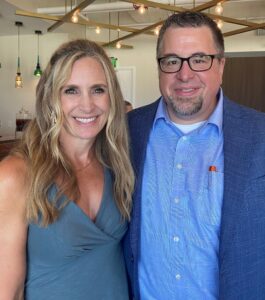
Fell and Hunt married in 2000, and after graduating, he began teaching at a now-defunct alternative high school in Longmont named Olde Columbine High School. During the summers, they also returned to campus to assist English Professor Cindy O’Donnell-Allen with the CSU Writing Project, which studies literacy and youth writing from an interdisciplinary perspective and believes the best teachers of writing are writers themselves.
The couple welcomed three daughters into their lives in the early 2000s, and Ani, whose mother was her English teacher for two years, graduated from Poudre High School in May 2023 and will be a student at CSU in the fall.
While teaching high school, Hunt quickly learned how to create lessons that motivated kids who didn’t like school and he began experimenting with the Internet, a relatively new technology at the time. He helped build the first wireless infrastructure in his classroom, which was also the first wireless network in the school district. “It was a little bit of ‘how do I teach with this?’ and ‘how do we set it up so that it makes sense for teaching,’” Hunt said. In 2004, he was hired by the IT department as an instructional technologist to help them develop technologies that worked for education and to train teachers on how to use them most effectively. Standing at the crossroads of technology, teaching, and learning has become his professional mission.
Navigating the Future
Hunt completed his master’s degree in 2011 and worked at the St. Vrain Valley School District until 2015 while also serving as a consultant to other districts and as an instructional coach and curriculum developer. He oversaw technology for the Clearview Library District in Windsor, Colorado, before becoming the CIO at Poudre School District in 2022.
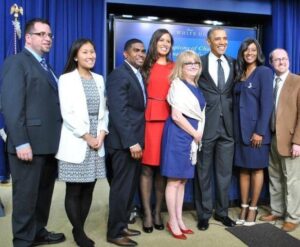
“The digital technologies that we have access to today should be part of the civic experience of every American,” said Hunt, who is a big proponent of the Digital Equity Act of 2021. “Like philosopher Marshall McLuhan said, ‘We shape our tools, then our tools shape us.’ So, the relationship between the stuff we make and then how it defines us is really important.”
As with most things in life, moderation is key to maintaining our equilibrium. “I remind both grown-ups and children that every cell phone has a power button, and you can turn it off,” Hunt said. “We’re constantly distracted because we choose to be and we sometimes forget that we can make the choice to put the thing down and go outside and read a book.”
“The pandemic was a moment where we struggled with excessive screen time. Everybody knows a little more about technology now than they did a few years ago,” he said, “but the role it should play in post-pandemic life is still a very open question.” Hunt believes PSD students receive valuable opportunities to develop and practice critical thinking skills in school, but those skills don’t always translate to thoughtful use of technology because it is less compartmentalized and woven throughout our lives.
“I believe very passionately that we must build people-centered systems, particularly at a time when you talk about AI or dehumanizing tech,” he said. “Technology has tremendous potential to amplify things, but the liberal arts side of me knows that people are not always good. So, balancing those two things is how we build a better today for everybody and a better tomorrow.”











